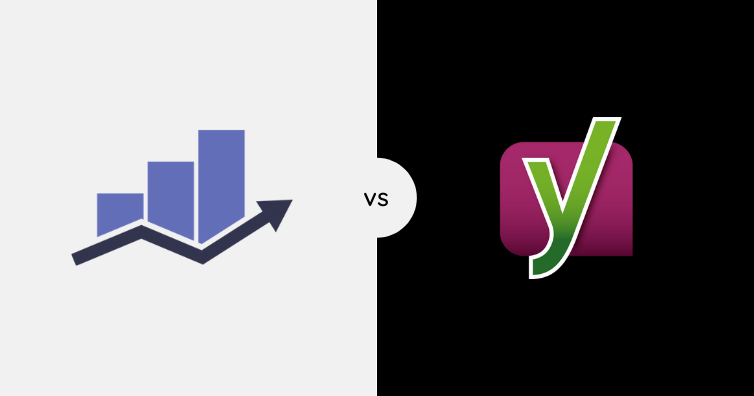Rank Math vs Yoast
If you’re running a WordPress site, you’ve probably heard of Yoast SEO and Rank Math. These two plugins are like the superheroes of search engine optimization, helping your site climb the Google ranks. Yoast is the long-time favorite, while Rank Math is the ambitious newcomer stealing the spotlight. I’ve used both on my own projects, and they’re honestly great—but they cater to different needs. Let’s dig into what makes each one tick and figure out which is the best fit for you in 2025.
A Quick Look: Yoast vs. Rank Math
Yoast SEO is the OG of WordPress SEO plugins, boasting over 10 million active installs. Since 2008, it’s been the trusty sidekick for bloggers and business owners alike. Then there’s Rank Math, launched in 2018, which has already racked up over 3 million users with its bold approach and packed free version. Both are easy to use and set up, but your decision might hinge on what you’re after—let’s break it down.

Free Features: Rank Math Packs More Punch
If you’re watching your wallet (who isn’t?), Rank Math might be your new best friend. Its free version is loaded with goodies you’d typically pay for elsewhere. You get SEO titles, meta descriptions, social media previews, XML sitemaps, image optimization, and a 404 error tracker. It even throws in redirects (301 and 302), basic WooCommerce tweaks, and local SEO support—all at no cost. Oh, and you can optimize for multiple keywords per page, which is huge for reaching more readers.
Yoast’s free version keeps it simpler: titles, meta descriptions, and sitemaps are covered, but extras like redirects, multiple keywords, or local SEO? Those are premium-only. Need WooCommerce support? That’s a separate $79/year add-on. Yoast offers bundle deals to ease the sting, but if free is your goal, Rank Math delivers way more bang for zero bucks.

Readability: Yoast Takes the Lead
Yoast really flexes its muscles when it comes to readability—something search engines care about more than you might think. It gives you a dedicated readability score based on the Flesch-Kincaid test, analyzing stuff like sentence length, word complexity, and transitions. Better yet, it hands you clear tips like “Break up this long sentence” or “Use more linking words.” It’s like having a writing buddy pointing out where you can improve.
Rank Math, meanwhile, rolls readability into its overall SEO score. You’ll see a basic “needs work” warning, but it doesn’t break it down or offer much direction unless you hunt through their help docs. If you want your content to be reader-friendly (and keep Google happy), Yoast’s detailed feedback is a clear winner.
Global SEO Settings: Rank Math Rules for Website Builders
Setting SEO rules for your whole site is a lifesaver, especially if you’re using a page builder like Elementor, Divi, or Beaver Builder. Both plugins let you set defaults for your homepage, posts, and pages—no sweat there. But Rank Math steps it up, especially in its free version. Use Elementor? You can tweak global SEO for landing pages, templates, and widgets. It’s a huge perk if your site’s got a lot going on.
Yoast sticks to the basics in its free version: homepage, posts, and pages. Even with a builder, you’re tweaking individual pages rather than setting global rules for custom elements. For anyone juggling a fancy site setup, Rank Math’s extra control is a game-changer.
Tracking Optimization: Both Make It Visual
Want a quick peek at how your content’s doing? Yoast and Rank Math both use color-coded signals (green = good, yellow = meh, red = fix it) right in your WordPress dashboard. Yoast splits its dots into SEO and readability columns, which I find super helpful for keeping tabs on both. Rank Math gives you one score out of 100, but it tosses in bonus info like keyword use and linking stats—great for a fast overview.
On individual pages, Yoast shows traffic lights up top and a breakdown below your content. Rank Math keeps it tidy with a sidebar and a score in the corner. They’re both slick and user-friendly—just depends on how you like your info served.
AI Features: Rank Math Goes Big, Yoast Keeps It Simple
AI’s all the rage, and both plugins are dipping their toes in. Rank Math’s Content AI is a beast—over 40 tools to brainstorm ideas, refine meta tags, or spruce up your writing. It’s powerful, but it’s an add-on that’ll cost you $60/year (or $48 for the first year). Yoast plays it cooler with two beta AI features: one crafts optimized titles and meta descriptions, the other suggests small edits. These are baked into Yoast Premium at no extra cost.
I haven’t tried these myself, but if you’re an AI enthusiast, Rank Math’s got the edge. If you just want a little help without the fuss, Yoast’s simpler approach might suffice.
Pricing: Affordable Scaling with Rank Math
Yoast’s free version works for one site, but its Pro plan jumps to $99/year per site—not ideal if you’ve got a few projects. Rank Math’s free version also covers one site, but its paid plan at $96/year (or $69 for the first year) handles unlimited personal sites. For agencies, Rank Math’s $299/year tier supports up to 200 sites—way more bang for your buck. Yoast has bundles, but Rank Math’s pricing feels friendlier for growth.
Rank Math vs Yoast – Speed
Yoast has become bloated.
When I ran New Relic and Query Monitor to find slow plugins, Yoast was one of the slowest.
At the time of writing this, Yoast has 87.2k lines of codes while Rank Math has 51.3k, and Rank Math’s plugin zip size is about 3 times smaller. Since I blog about WordPress speed, having lightweight plugins is super important to me and one of the main reasons I decided to switch.

Comparison Table: Rank Math vs. Yoast at a Glance
| Feature | Rank Math | Yoast SEO |
|---|---|---|
| Ease of Use | Easy navigation, clear setup options | Simple interface, great visuals |
| Free Features | Multiple keywords, redirects, more | Basic tools, extras need premium |
| Readability | Basic, folded into SEO score | Detailed, separate score with tips |
| Global SEO | Advanced, works with builders | Limited to basics in free version |
| Optimization Visuals | Single score + linking stats | Separate SEO/readability dots |
| AI Tools | 40+ tools ($60/year add-on) | 2 features (free with premium) |
| Pricing | Free; $96/year unlimited sites | Free; $99/year per site |
| Popularity | 3M+ installs, rising fast | 10M+ installs, long-time leader |
Conclusion: It’s Your Call
After playing around with both, I can say Yoast and Rank Math are top-notch choices for 2025—they just cater to different vibes. Yoast is the steady, reliable pick with unbeatable readability tools and a knack for teaching newbies the SEO ropes. Rank Math feels like the bold upstart, piling on free features and scaling options that make it perfect for multi-site hustlers or builder fans.
If you’re just starting out or want polished, reader-friendly content, Yoast’s your guy. If you’re juggling sites or crave flexibility without breaking the bank, Rank Math might steal your heart. Yoast has the legacy, but Rank Math’s 3 million installs and 5-star buzz prove it’s no slouch. So, which one’s calling your name?
FAQs: Your Questions Answered
1. Which plugin is better for beginners?
Yoast is friendlier for newbies. Its readability tips and optional SEO courses (free and paid) make it a great learning tool, while Rank Math’s feature-heavy approach might feel overwhelming at first.
2. Can I use both plugins together?
Technically, yes, but it’s not a good idea. They’ll clash over settings and slow your site down. Pick one and stick with it.
3. Does Rank Math’s free version really outshine Yoast’s?
Yup! You get redirects, multiple keywords, and global builder support for free with Rank Math—stuff Yoast locks behind premium.
4. How do their premium plans compare?
Rank Math’s $96/year for unlimited personal sites beats Yoast’s $99/year per site, hands down. Yoast’s bundles help, but Rank Math scales cheaper.
5. Which one’s faster for site performance?
Both are lightweight, but Rank Math’s modular design lets you disable unused features, potentially giving it a slight edge in speed.
6. Can I switch from Yoast to Rank Math easily?
Absolutely. Rank Math has a built-in importer to transfer your Yoast settings in minutes—no mess, no stress.
📚 Also Read
- Top 21 amazing and useful websites 2025 Best in 2025
Top 21 amazing and Useful Websites 2025″ – You’ll be surprised to learn about these unique and helpful websites! From fun tools to productivity boosters - W3Schools: The Best Website for Free Online Web Tutorials 2025
Explore W3Schools, a leading platform offering free tutorials on HTML, CSS, JavaScript, PHP, Python, and more. - 4 Key Ways to Keep Visitors Coming Back to Your Blog (Ultimate Guide 2025)
Discover the top 4 strategies to keep visitors returning to your blog. Learn how to engage readers, increase blog traffic, and retain loyal followers with this comprehensive 2025 guide.




